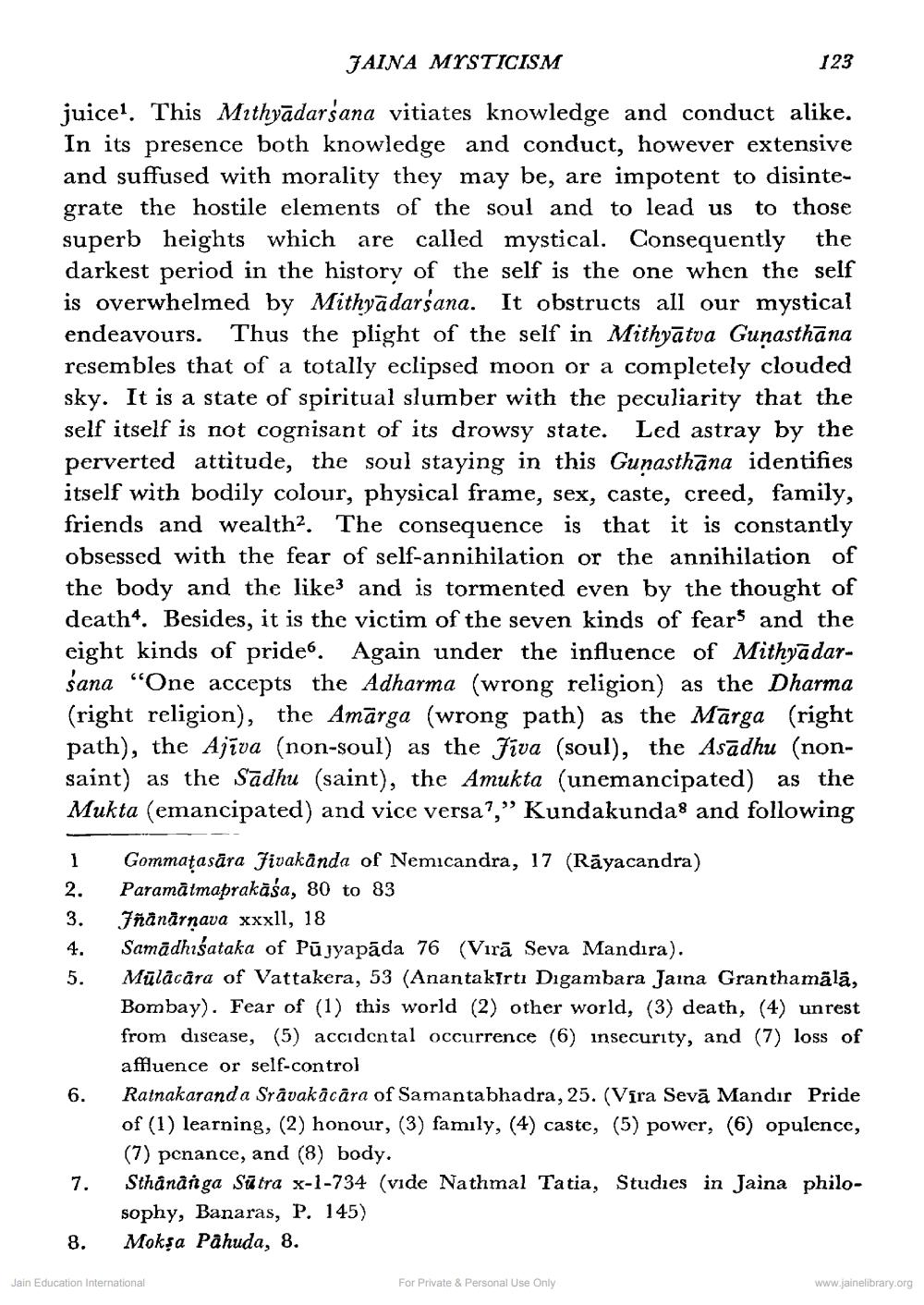________________
JAINA MYSTICISM
123
juicel. This Mithyādarsana vitiates knowledge and conduct alike. In its presence both knowledge and conduct, however extensive and suffused with morality they may be, are impotent to disintegrate the hostile elements of the soul and to lead us to those superb heights which are called mystical. Consequently the darkest period in the history of the self is the one when the self is overwhelmed by Mithyādarsana. It obstructs all our mystical endeavours. Thus the plight of the self in Mithyātva Gunasthāna resembles that of a totally eclipsed moon or a completely clouded sky. It is a state of spiritual slumber with the peculiarity that the self itself is not cognisant of its drowsy state. Led astray by the perverted attitude, the soul staying in this Gunasthāna identifies itself with bodily colour, physical frame, sex, caste, creed, family, friends and wealth2. The consequence is that it is constantly obsessed with the fear of self-annihilation or the annihilation of the body and the like3 and is tormented even by the thought of death4. Besides, it is the victim of the seven kinds of fears and the eight kinds of pride. Again under the influence of Mithyādarśana “One accepts the Adharma (wrong religion) as the Dharma (right religion), the Amārga (wrong path) as the Mārga (right path), the Ajīva (non-soul) as the fiva (soul), the Asādhu (nonsaint) as the Sadhu (saint), the Amukta (unemancipated) as the Mukta (emancipated) and vice versa?,” Kundakundaand following
2.
3.
Gommatasāra Jivakânda of Nemicandra, 17 (Rāyacandra) Paramātmaprakāśa, 80 to 83 Jñanārnava xxxll, 18 Samādhisataka of Pūjyapāda 76 (Virā Seva Mandıra). Mülācāra of Vattakera, 53 (Anantakirti Digambara Jaina Granthamälā, Bombay). Fear of (1) this world (2) other world, (3) death, (4) un rest from disease, (5) accidental occurrence (6) insecurity, and (7) loss of affluence or self-control Ratnakarand a Sravakācāra of Samantabhadra, 25. (Vira Sevā Mandır Pride of (1) learning, (2) honour, (3) family, (4) caste, (5) power, (6) opulence, (7) penance, and (8) body. Sthånânga Sutra x-1-734 (vide Nathmal Tatia, Studies in Jaina philosophy, Banaras, P. 145) Moksa Pahuda, 8.
8.
Jain Education International
For Private & Personal Use Only
www.jainelibrary.org




